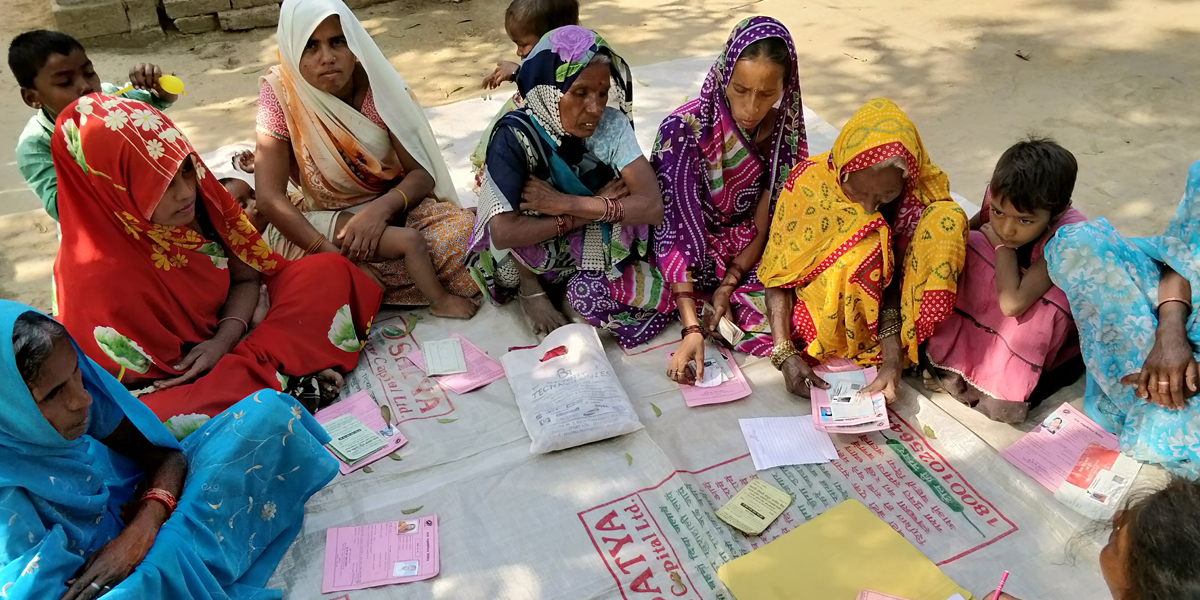
As India continues its journey towards digitization of the economy, the payments space bears witness to rapidly evolving digital infrastructure, and innovative financial solutions. An intermediate objective of this journey is to ensure that every citizen should be able to transact digitally, with the same ease as cash.
While the benefits of digital payments are well documented at the macroeconomic level, Pratyush Halen, founder of Fingpay is of the view that each stakeholder derives unique benefits from transacting digitally as well. Firstly, unbanked and underserved consumers who begin to transact digitally create a transactions history that can be a gateway to various other financial products such as credit and insurance. Secondly, as a result of this increased base of eligible consumers, financial service providers gain access to broader markets for their products. Lastly, this enables governments to bring informal transactions under the umbrella of the formal sector and provides them valuable data on the scale of economy activity in the country
BIOMETRICS PAYMENTS ARE THE NEED OF THE HOUR
With these factors in mind, Fingpay, a biometrics-based payments platform, envisages an economy where all transactions are possible bare-pocket – without the need for customers to carry cash, cards or phones on them. “Till a couple of years ago, approximately only 20 lakh of the nearly two crore merchants in India had the ability to accept digital payments. These low acceptance levels can in part be attributed to the inertia that stems from the issuance costs of credit and debit cards, and the security and monthly rentals on Point of Sale machines. To tackle this inertia, the need of the hour was a better digital payments solution which was cost-effective, secure, and mimics the ease of cash” says Pratyush. Fingpay utilises the Aadhaar number – bank account linkages in authenticating transactions via biometrics stored in the UIDAI database, thus enabling anyone with a bank account linked to their Aadhaar number to transact digitally
Adoption of digital payment solutions requires ownership of smartphones and fundamental knowledge about using the platform. In rural areas of India, where network coverage and signal strengths are weak, fintech companies such as Fingpay face an uphill task. With 68% of India’s population living in rural areas, where the choices of payment options are limited, the Fingpay team believes that their biggest challenges also offer them the opportunity to create impact at the last mile. Their Aadhaar Enabled Payment System (AEPS) aims to bring the rural economy at par with the digital progress made by the rest of the economy. The team adds “Once our platform proves to be successful, it can be scaled up across similar geographical locations.”
DIGITAL ONBOARDING TO INCREASE PLATFORM UPTAKE
Fostering large-scale adoption of the Fingpay platform required a unique strategy. Pratyush elaborates, “Our process of on-boarding merchants remotely, using a digital interface, sets us apart from other players in this space and gives us an edge in pushing Fingpay at scale. The sign-up process is a detailed one and lets the merchants provide requisite details which are verified in real-time and enables them to start transacting immediately”.
Pratyush and his team acknowledge that their experience with the Catalyst Incubator* in Jaipur has provided them with valuable connections in the ecosystem, especially on the policy front. He adds “The incubator is designed to support start-ups which can re-imagine and reinvent fintech products for the masses in ways that optimize for specific needs and contexts through affordable channels.”
As is the case with all new solutions, Fingpay’s platform had to evolve and adapt in accordance with learnings in the initial stages. Pratyush says “The product had to be iterated a few times. It continues to evolve in response to various challenges on the field.” Some of the challenges that Fingpay continuously engages with include the absence of chargeback guidelines in case of fraudulent or disputed transactions and a clear refund policy for these transactions.
The team believes that cooperation between regulators, governments and companies can bridge these gaps. The Catalyst Incubator Program also enables the start-ups to execute their mission smoothly by facilitating partnerships with organisations that can complement or support their activities, and partnerships with other start-ups to promote cross-learning.
PRODUCT ITERATION AN ESSENTIAL STEP
Where does Fingpay see itself five years down the line? Pratyush ambitiously says “We see ourselves embedded in all layers of transactions currently dominated by hard cash – with a deeper presence in rural areas of the country. We would like to diversify and offer our customers insurance and other financial products. In doing so, we will also be able to capture customer data which will provide valuable insights into their needs and financial lives, and can be leveraged to create customised financial solutions for them.”
